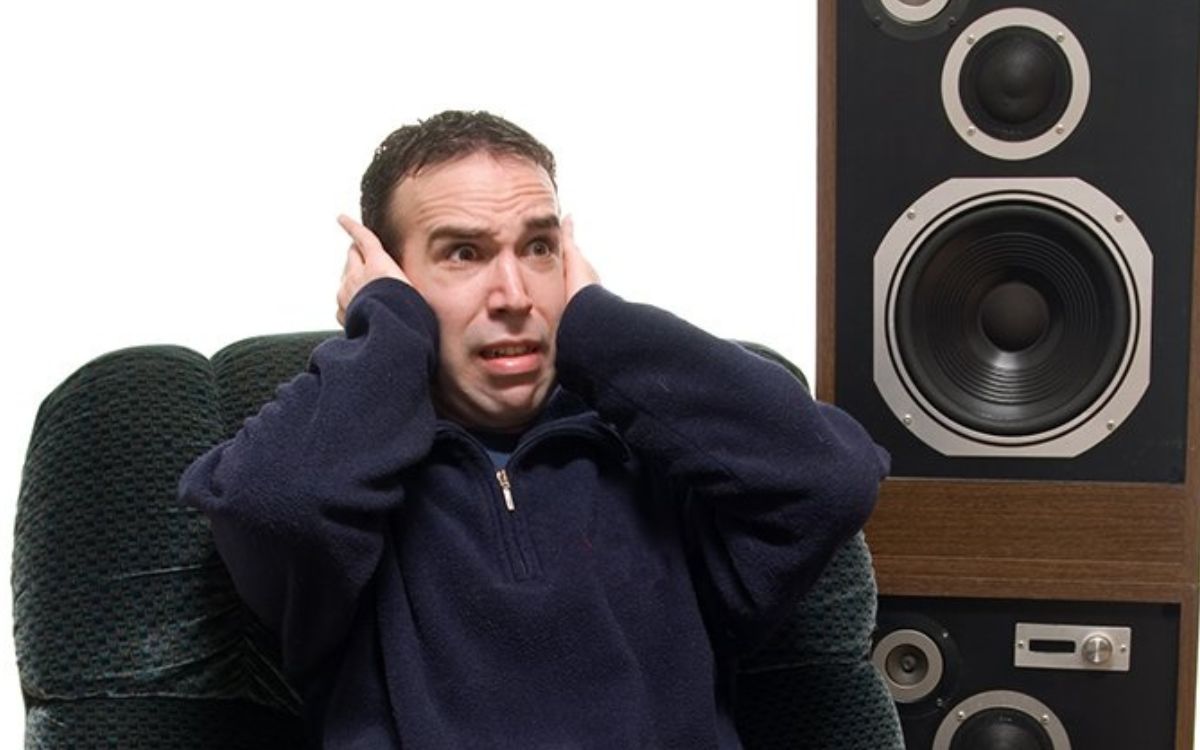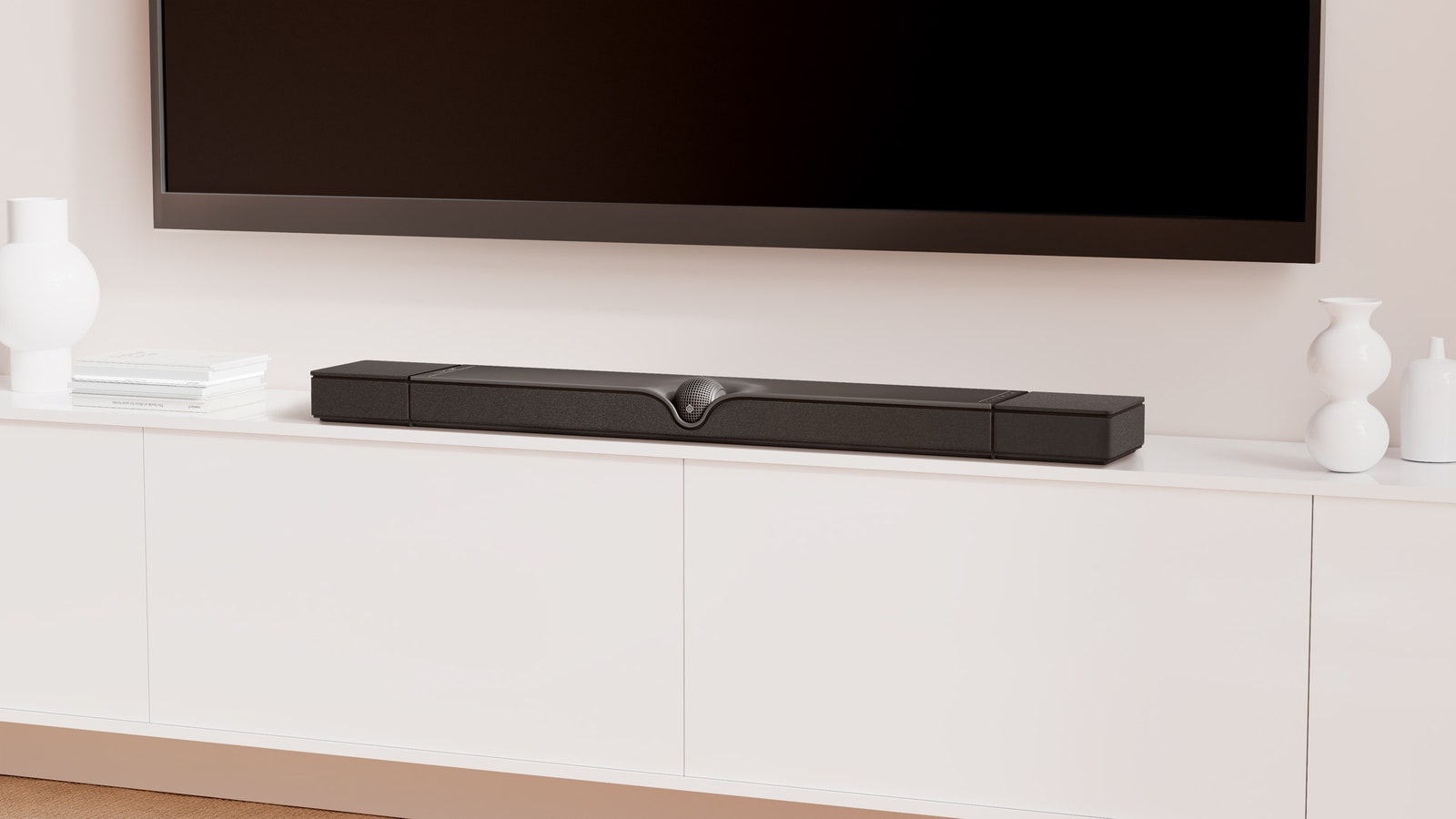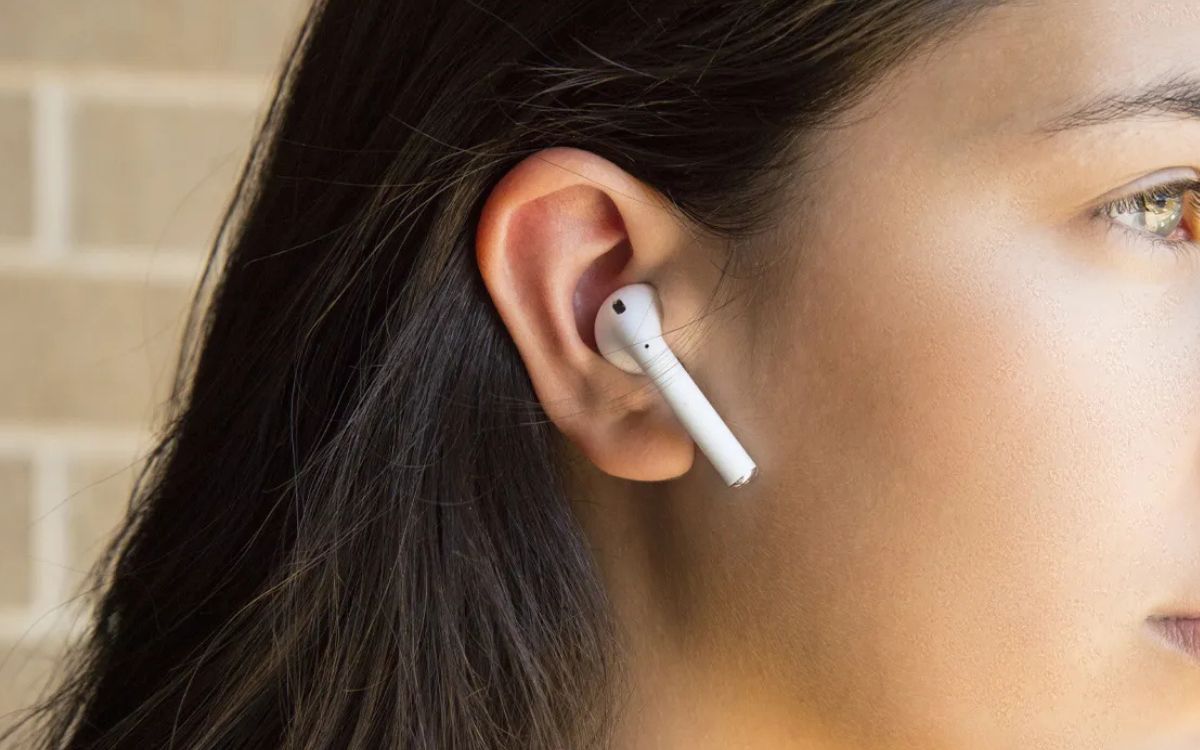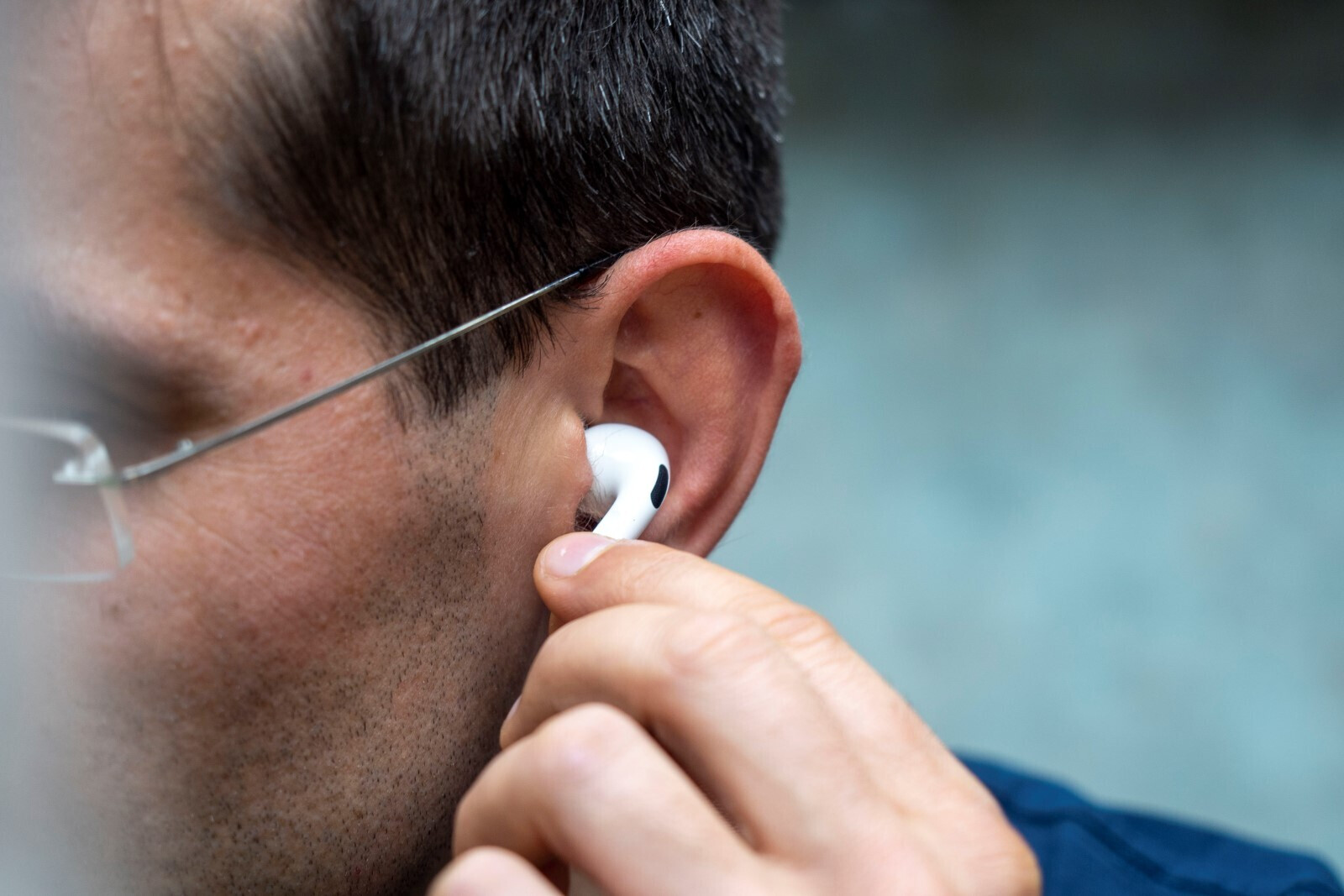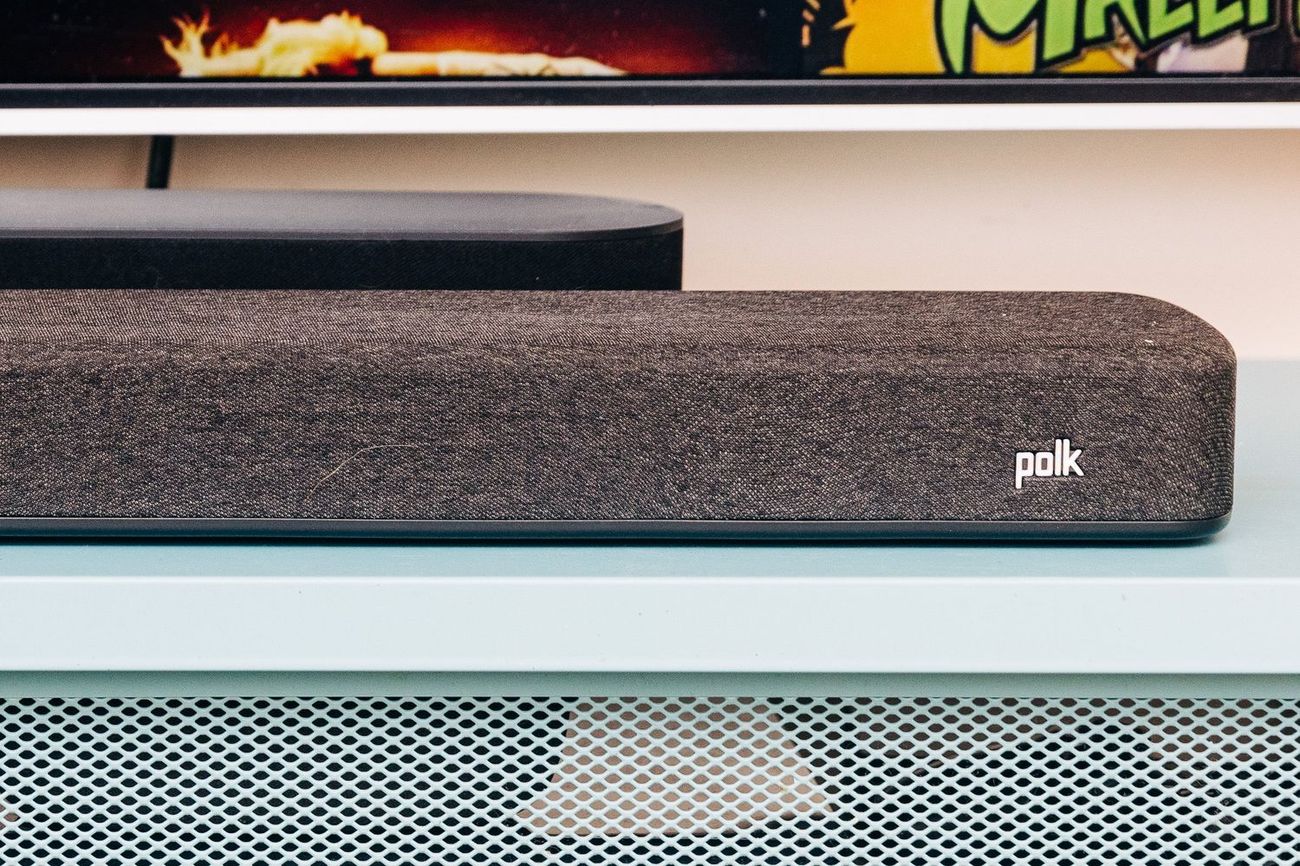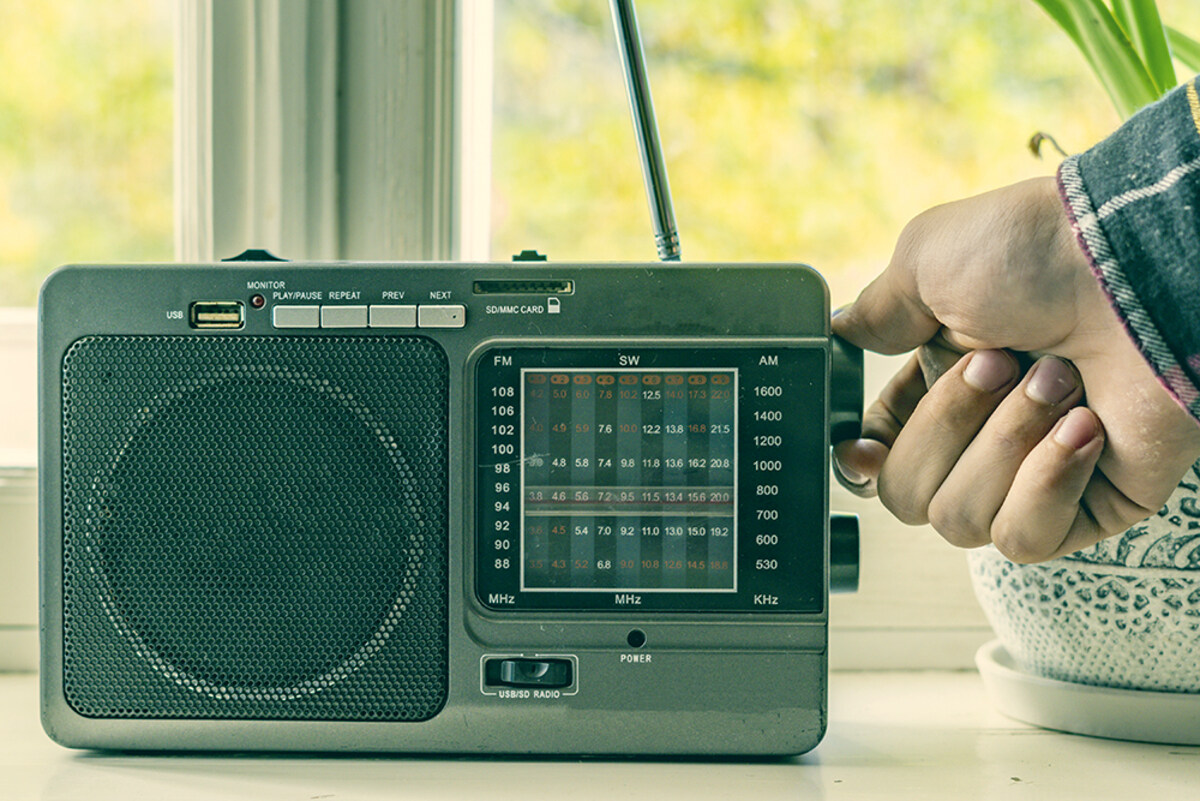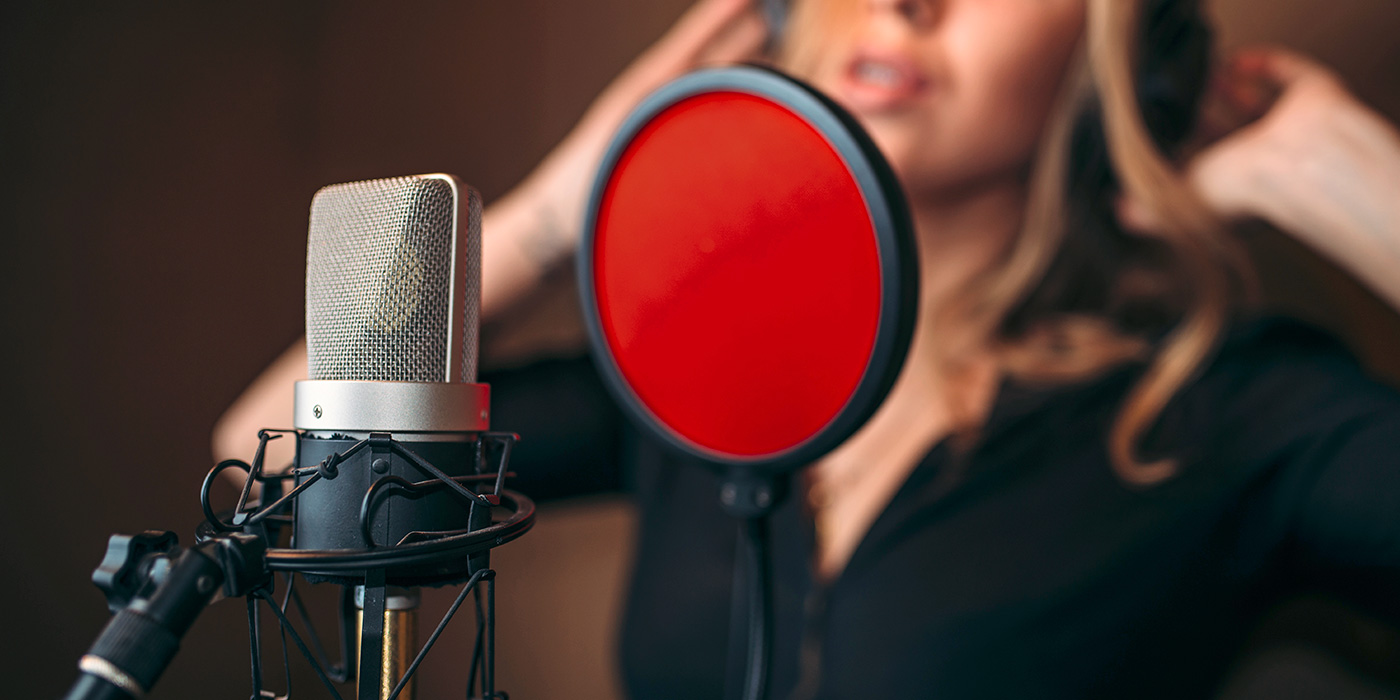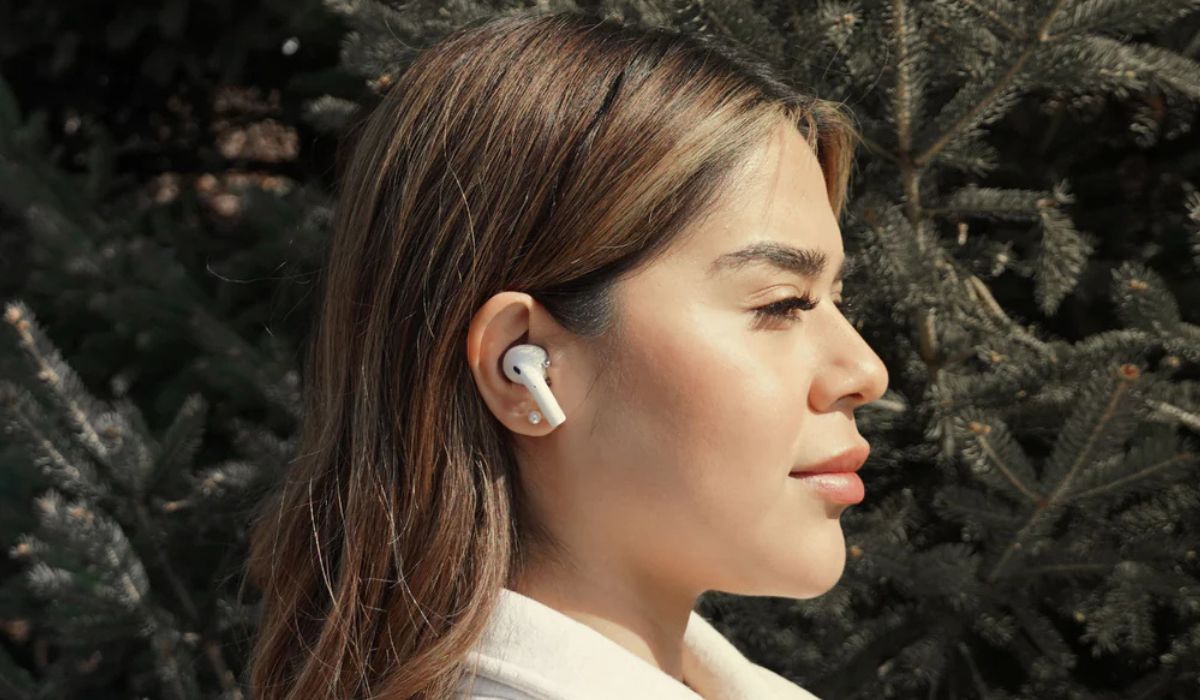Home>Production & Technology>Sound>Why Is My Ear Making A Popping Sound
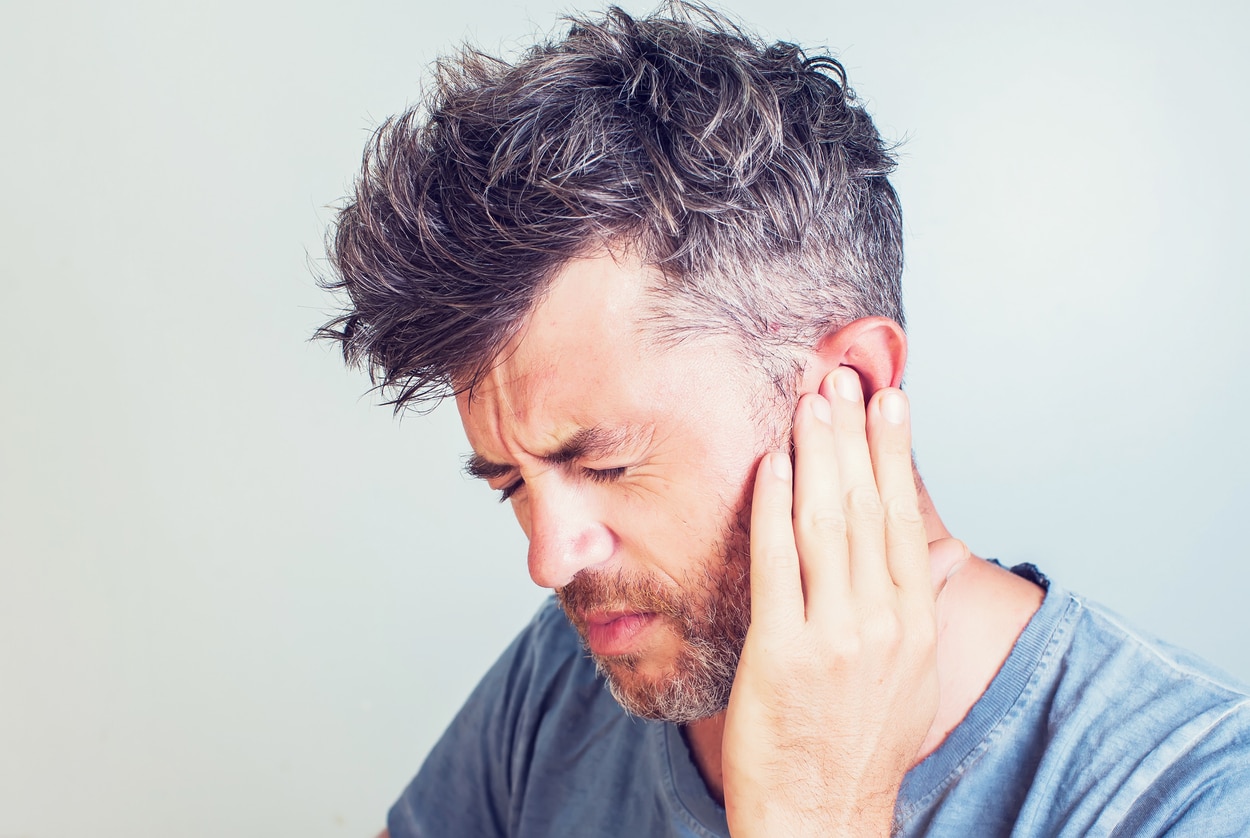

Sound
Why Is My Ear Making A Popping Sound
Published: December 18, 2023
Discover the possible causes behind why your ear is making a popping sound. Explore tips and remedies to alleviate this bothersome sound.
(Many of the links in this article redirect to a specific reviewed product. Your purchase of these products through affiliate links helps to generate commission for AudioLover.com, at no extra cost. Learn more)
Table of Contents
Introduction
Have you ever experienced the sensation of your ear making a popping sound? It can be both perplexing and annoying. Whether it happens when you yawn, swallow, or even just out of the blue, this mysterious sound can leave you wondering what exactly is going on inside your ear.
In order to understand why your ear may be making these popping sounds, it’s important to have a basic understanding of the anatomy of the ear. The ear is a complex organ responsible for both hearing and maintaining balance. It consists of three main parts: the outer ear, the middle ear, and the inner ear.
The outer ear, composed of the visible part of your ear and the ear canal, collects and directs sound waves towards the middle ear. The middle ear is an air-filled chamber that houses the eardrum and the three tiny bones called ossicles. When sound waves reach the eardrum, they cause it to vibrate, setting the ossicles in motion. These vibrations are then transmitted to the inner ear.
The inner ear contains the cochlea, which is responsible for converting sound vibrations into electrical signals that can be interpreted by the brain. It also contains the vestibular system, which helps with balance and spatial orientation.
Now that we have a basic understanding of the ear’s anatomy, let’s delve into the possible causes of ear popping sounds. There are several reasons why your ear may make popping sounds, ranging from harmless situations to more serious conditions.
Understanding the Anatomy of the Ear
The human ear is a remarkable and complex organ that plays a vital role in our ability to hear and maintain balance. To better understand the causes of ear popping sounds, it’s important to have a clear understanding of the ear’s anatomy.
The ear can be divided into three main sections: the outer ear, the middle ear, and the inner ear.
The outer ear is the visible part of the ear that we commonly recognize, consisting of the pinna (the fleshy, external part) and the ear canal. Its primary function is to collect sound waves and direct them towards the middle ear.
When sound waves enter the ear canal, they reach the middle ear, which is an air-filled space located behind the eardrum. The eardrum, also known as the tympanic membrane, separates the outer ear from the middle ear. When sound waves strike the eardrum, it vibrates, converting the sound energy into mechanical energy.
The middle ear also contains three small bones called ossicles. These bones, known as the malleus (hammer), incus (anvil), and stapes (stirrup), are connected to each other in a chain-like configuration. When the eardrum vibrates, it causes these ossicles to vibrate as well, amplifying and transmitting the sound vibrations to the inner ear.
The inner ear, located deep within the skull, is responsible for converting sound vibrations into electrical signals that can be interpreted by the brain. It consists of the cochlea, a snail-shaped organ that plays a crucial role in hearing, and the vestibular system, which is responsible for maintaining balance and spatial orientation.
Within the cochlea, thousands of tiny hair cells line the walls. These hair cells are instrumental in converting sound vibrations into electrical signals. When the sound vibrations reach the cochlea, the hair cells move in response, generating electrical signals that are then transmitted to the brain through the auditory nerve. This is how we perceive and interpret sound.
The vestibular system, on the other hand, consists of three semicircular canals and the utricle and saccule, which are fluid-filled structures that detect motion and changes in the position of the head. These structures help us maintain balance and a sense of spatial orientation.
Now that we have a solid understanding of the ear’s anatomy, we can delve deeper into the possible causes of ear popping sounds in the next section.
Causes of Ear Popping Sounds
Ear popping sounds can occur for various reasons, ranging from normal physiological processes to underlying medical conditions. Understanding these causes can help shed light on why your ear may be making those popping sounds.
- Eustachian Tube Dysfunction: One of the most common causes of ear popping sounds is dysfunction of the Eustachian tube. This tube connects the middle ear to the back of the throat and serves to equalize the pressure between the middle ear and the external environment. When this tube becomes blocked or doesn’t open properly, a pressure imbalance can occur, leading to the sensation of ear popping or even crackling sounds.
- Pressure Changes: Rapid changes in air pressure can cause your ears to pop. This often happens during activities such as flying in an airplane, driving in the mountains, or scuba diving. The changing altitude or water pressure can disrupt the equilibrium and result in a sensation of popping or pressure in the ears.
- Temporomandibular Joint (TMJ) Disorder: The TMJ is the joint that connects your jaw to your skull. When this joint is misaligned or inflamed, it can cause a variety of symptoms, including ear popping sounds. The close proximity between the TMJ and the ear can lead to referred sensations of popping or clicking in the ears.
- Earwax Buildup: Excessive earwax accumulation can block the ear canal, leading to changes in pressure and a sensation of ear popping. The wax buildup can prevent the proper functioning of the Eustachian tube and disrupt the equilibrium in the middle ear.
- Sinus Infections or Allergies: Sinus infections or allergies can cause inflammation and congestion in the nasal passages, which can affect the Eustachian tube. When the tube becomes blocked, it can result in an unequal pressure between the middle ear and the external environment, manifesting as ear popping sounds.
- Infections or Fluid in the Middle Ear: Infections, such as otitis media, and the accumulation of fluid in the middle ear can disrupt the normal functioning of the Eustachian tube, leading to changes in pressure and ear popping sounds.
- Barotrauma: Barotrauma occurs when there is a sudden change in pressure, such as during scuba diving or rapid weight changes in an elevator. This can cause the eardrum to stretch or tear, resulting in a popping sensation and potential hearing loss.
- Medications or Medical Treatments: Certain medications or medical treatments, such as nasal sprays or grommets (tubes placed in the ears to drain fluid), can affect the pressure regulation in the middle ear, leading to ear popping sounds.
These are just a few of the many potential causes of ear popping sounds. It’s essential to consider other factors such as age, underlying health conditions, and specific symptoms when determining the exact cause. If you experience persistent or severe ear popping sounds, it’s best to consult with a healthcare professional for a proper diagnosis and treatment.
Conditions Related to Ear Popping
Ear popping sounds can be associated with various underlying conditions. Understanding these conditions can provide further insight into why your ears may be making those popping sounds.
- Eustachian Tube Dysfunction: Chronic dysfunction of the Eustachian tube can lead to a condition known as Eustachian tube dysfunction (ETD). This occurs when the tube fails to open or close properly, resulting in persistent ear popping sounds, fullness in the ears, and potential hearing loss.
- Otitis Media: Otitis media is an infection or inflammation of the middle ear, often caused by bacteria. It can result in a buildup of fluid behind the eardrum, causing ear popping sounds, pain, and potential hearing difficulties.
- Temporomandibular Joint (TMJ) Disorder: TMJ disorder can cause various symptoms, including ear popping sounds, jaw pain, clicking or locking of the jaw, and difficulty chewing or speaking. The close proximity between the TMJ and the ear can lead to referred sensations of ear popping or crackling.
- Sinusitis: Sinusitis refers to inflammation or infection of the sinuses, which are air-filled cavities located around the nasal passages. When the sinuses become inflamed, they can produce excessive mucus and cause congestion, leading to Eustachian tube dysfunction and ear popping sounds.
- Barotrauma: Barotrauma is a condition that occurs when there is a sudden and drastic change in pressure, such as during scuba diving or high-altitude activities. The rapid pressure change can cause damage to the Eustachian tube and result in ear popping sounds, pain, and potential eardrum rupture.
- TMJ-Related Tinnitus: Tinnitus is a condition characterized by the perception of sound, such as ringing or buzzing, without an external source. TMJ disorder can be associated with tinnitus, which can manifest as ear popping sounds combined with persistent ringing or other noises in the ears.
If you are experiencing ear popping sounds along with other concerning symptoms, it’s important to consult with a healthcare professional. They can provide an accurate diagnosis and recommend appropriate treatment options to address the underlying condition that may be contributing to the ear popping sounds.
Remedies and Treatments for Ear Popping
If you are bothered by frequent ear popping sounds, there are several remedies and treatments that may help alleviate the discomfort and improve your ear health. The appropriate approach will depend on the underlying cause of the ear popping. Here are some common strategies:
- Yawning or Swallowing: Simple techniques like yawning or swallowing can help equalize pressure in the middle ear and potentially relieve ear popping. These actions can activate the muscles responsible for opening the Eustachian tube, allowing air to flow in or out.
- Chewing Gum or Sucking on Candy: Similarly, chewing gum or sucking on candy can stimulate the muscles involved in Eustachian tube function, helping to relieve pressure and reduce ear popping sounds.
- Nasal Decongestants: If the ear popping is due to nasal congestion or allergies, using nasal decongestants or saline nasal sprays may help reduce inflammation and improve Eustachian tube function. However, it’s important to follow the instructions and not overuse these medications, as prolonged use can have adverse effects.
- Hot Compresses: Applying a warm compress or hot towel to the affected ear can help alleviate any discomfort and promote relaxation of the Eustachian tube muscles. This may aid in relieving ear popping caused by pressure imbalances.
- Ear Irrigation: In cases where earwax buildup is contributing to the ear popping sounds, ear irrigation can be performed by a healthcare professional to safely remove the excess wax and restore normal ear function.
- Treatment of Underlying Conditions: If the ear popping is a result of an underlying condition such as Eustachian tube dysfunction, sinusitis, or temporomandibular joint disorder, treating these conditions can often alleviate the symptoms. This may involve using medications, physical therapies, or in severe cases, surgery.
- Avoiding Pressure Changes: If you frequently experience ear popping during activities such as flying, scuba diving, or driving in the mountains, taking measures to equalize pressure can be helpful. This may include using earplugs, swallowing, or practicing specialized techniques recommended by professionals.
It’s important to note that these remedies and treatments may offer relief for some individuals, but they may not be suitable or effective for everyone. If the ear popping sounds persist, worsen, or are accompanied by severe pain, hearing loss, or other concerning symptoms, it is recommended to seek medical attention. A healthcare professional can provide a proper diagnosis and determine the most appropriate treatment plan for your specific situation.
When to Seek Medical Attention
While ear popping sounds are often harmless and temporary, there are instances when it’s important to seek medical attention. If you experience any of the following symptoms along with ear popping, it is advisable to consult with a healthcare professional:
- Persistent or Worsening Symptoms: If the ear popping sounds persist or worsen over time, despite trying various home remedies or treatments, it’s important to seek medical attention. Persistent ear popping can be a sign of an underlying condition that requires proper diagnosis and treatment.
- Severe Pain: If you experience severe or sharp pain in your ears along with the popping sounds, it may indicate an infection, injury, or other serious condition. Prompt medical attention is necessary to determine the cause and provide appropriate treatment.
- Hearing Loss: If you notice a significant decrease in your hearing ability, whether it’s temporary or permanent, it is crucial to consult with a healthcare professional. Hearing loss can have various causes, and an evaluation by a specialist can help identify the underlying issue and determine the best course of action.
- Dizziness or Imbalance: If the ear popping sounds are accompanied by dizziness, vertigo, or difficulty with balance, it may indicate an issue with your vestibular system. These symptoms can significantly impact your quality of life and may require further investigation and specialized treatment.
- Tinnitus: If you experience persistent ringing, buzzing, or other abnormal sounds in your ears (tinnitus) along with ear popping, it’s important to seek medical attention. Tinnitus can be a sign of an underlying condition that needs to be addressed by a healthcare professional.
- Fever or Swelling: If you develop a fever or notice swelling around the ear, it may indicate an infection or inflammation. Immediate medical attention is necessary to prevent complications and determine appropriate treatment.
Remember, it’s always better to err on the side of caution when it comes to your health. If you are unsure or concerned about your symptoms, consulting with a healthcare professional will provide you with the necessary guidance and assistance to address any underlying issues causing the ear popping sounds.
Prevention Tips
While it may not always be possible to prevent ear popping sounds entirely, there are several steps you can take to minimize their occurrence and maintain good ear health. Consider the following prevention tips:
- Practice Good Ear Hygiene: Keeping your ears clean and free from excessive earwax build-up can help prevent blockages and maintain proper ear function. Use gentle cleaning techniques and avoid inserting objects into your ears.
- Avoid Excessive Noise: Exposure to loud noises can damage the delicate structures of the inner ear, leading to hearing loss and other ear-related problems. When in loud environments, such as concerts or construction sites, use ear protection, such as earplugs or earmuffs, to reduce the risk of damage.
- Stay Hydrated: Proper hydration promotes optimal mucous membrane function, including those in the ears and Eustachian tubes. Drinking an adequate amount of water each day can help prevent congestion and maintain proper Eustachian tube function.
- Take Proper Care of Allergies and Sinus Issues: If you have allergies or sinus issues, take steps to manage them effectively. By minimizing nasal congestion and inflammation, you can reduce the risk of Eustachian tube dysfunction and associated ear popping sounds.
- Equalize Pressure during Altitude Changes: If you are traveling by air, driving at high altitudes, or engaging in activities with rapid pressure changes, try to equalize the pressure in your ears to prevent or minimize ear popping. Techniques such as swallowing, yawning, or using specialized ear pressure equalization methods can be helpful.
- Practice Stress Management: Stress and anxiety can contribute to muscle tension, including those around the jaw and ears. Engaging in stress-reducing activities, such as exercise, meditation, or relaxation techniques, can help reduce tension and prevent exacerbation of ear popping symptoms.
- Avoid Inserting Objects into the Ear: It’s important to resist the urge to insert objects, such as cotton swabs or bobby pins, into your ears. This can push earwax deeper into the ear canal, leading to blockages and potentially causing ear popping sounds.
- Consult with a Healthcare Professional: If you have recurring or persistent ear popping sounds, it’s advisable to consult with a healthcare professional. They can assess your specific situation, provide guidance on preventive measures, and offer appropriate treatment options if necessary.
By following these prevention tips, you can promote overall ear health and minimize the occurrence of ear popping sounds. However, if you have underlying medical conditions or concerns, it’s important to consult with a healthcare professional for personalized advice and recommendations.
Conclusion
Ear popping sounds can be a common and often harmless occurrence, but they can also be indicative of underlying issues that require attention. Understanding the anatomy of the ear and the various causes of ear popping sounds can provide valuable insight into why these sounds occur.
From Eustachian tube dysfunction to barotrauma, sinus infections to TMJ disorder, there are numerous factors that can contribute to ear popping sounds. Identifying the underlying cause is crucial for determining the appropriate remedies and treatments.
Fortunately, there are several preventive measures and remedies that can help alleviate ear popping sounds. Techniques such as yawning, swallowing, and chewing gum can help equalize pressure in the middle ear. Managing allergies, practicing good ear hygiene, and staying hydrated are also important in promoting ear health.
While many cases of ear popping can be managed at home, it’s essential to seek medical attention if the symptoms persist, worsen, or are accompanied by severe pain, hearing loss, or other concerning symptoms. A healthcare professional can provide a proper diagnosis and recommend appropriate treatment options specific to your situation.
Remember, prevention is key. Taking care of your ears, avoiding excessive noise, and properly equalizing pressure during altitude changes can help minimize the occurrence of ear popping sounds. By prioritizing ear health and seeking timely medical attention when needed, you can ensure optimal ear wellness and preserve your hearing for years to come.

